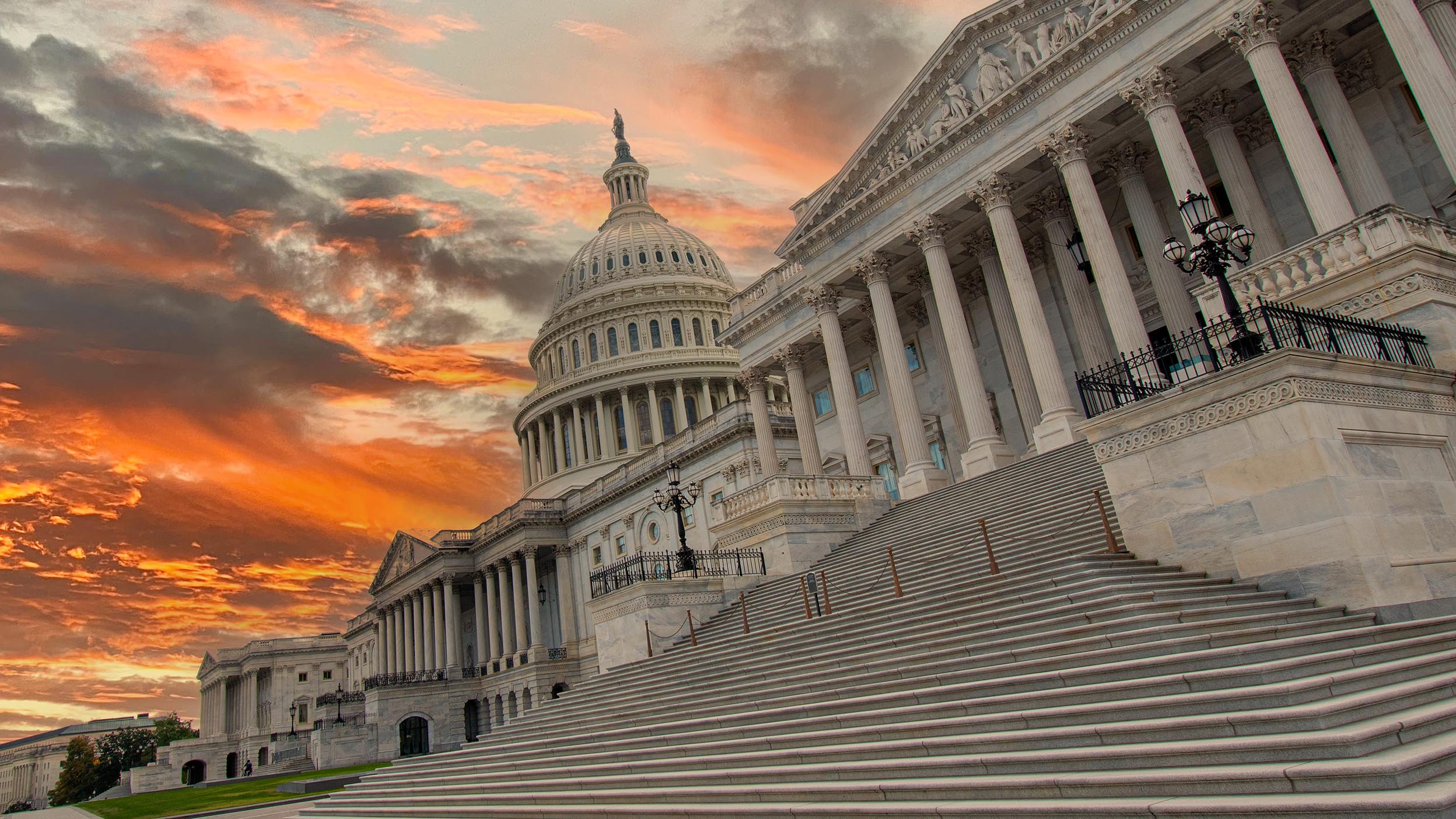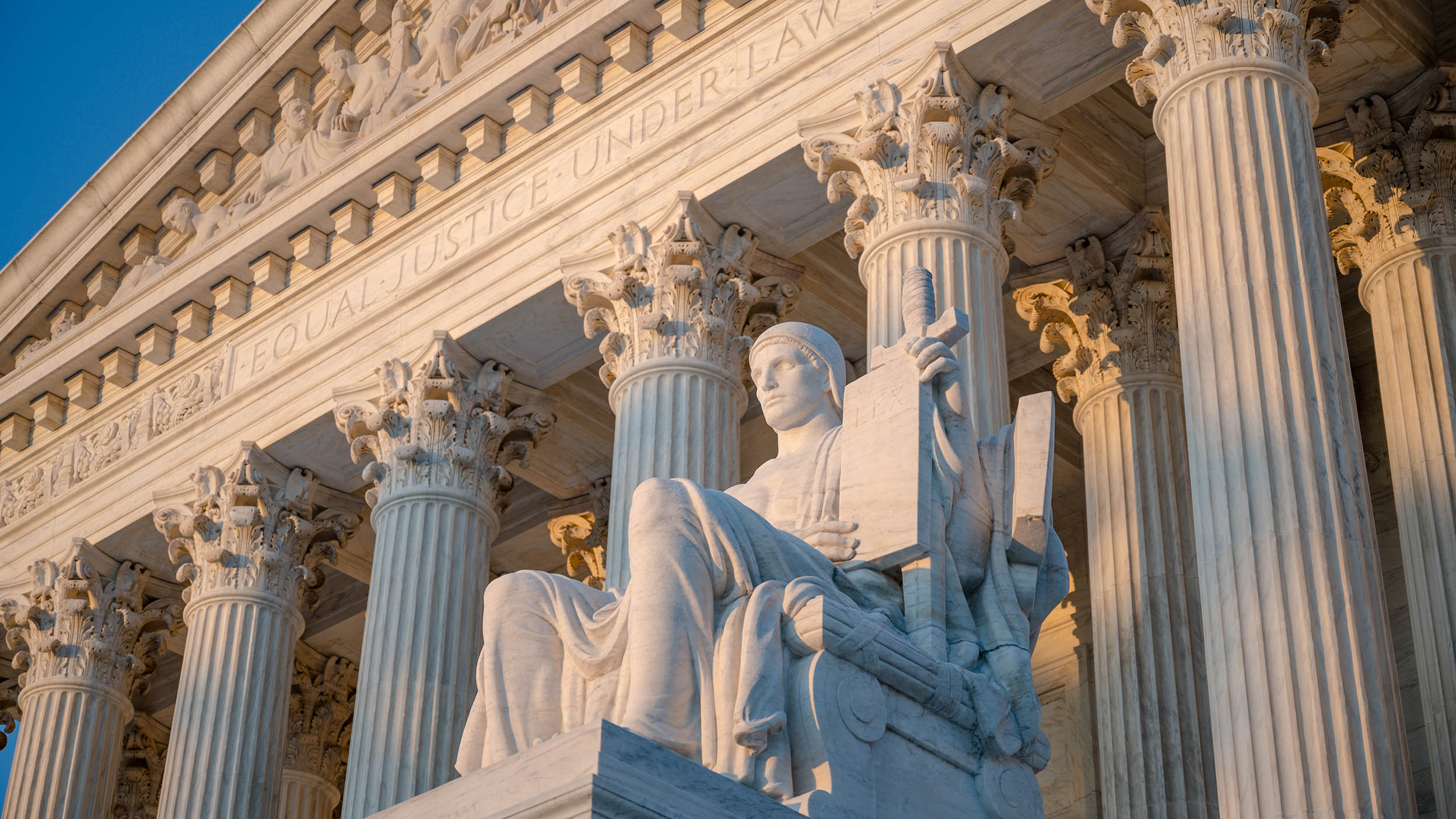
Markets and Economy Markets take Supreme Court tariff ruling, US-Iran tensions in stride
Markets largely expected last week’s tariff decision and the flare-up in US-Iran tensions, while new US economic data was weaker than anticipated.

Barely two months after the previous shutdown, a Senate standoff may halt funding for key government agencies.
While the last shutdown saw limited market volatility, previous ones had more, though they tended to resolve quickly with little overall impact.
Don’t let any short-term market volatility from a government shutdown change your long-term investing plan.
The federal government is facing another shutdown. As Democrats and Republicans argue over conditions for funding, many agencies could close their doors Friday evening. The market hasn't reacted so far. What is a government shutdown, and how will it be resolved? Will the government shutdown affect the stock market? Should investors care?
During past shutdowns, essential government functions tended to continue. This has included, but wasn't limited to, air-traffic control, border patrol, federal prisons, power grid, mail delivery, disaster relief, food-safety inspections, military, and tax collection. Seniors continued to receive Social Security and Medicare. Veteran benefits, unemployment benefits, and food stamps were administered.
Many non-essential government activities previously ceased though. Examples abound, but here are just a few. The Justice Department suspended many civil cases. NASA paused most projects but continued to support the International Space Station. Certain national parks remained open, but with limited hours and staffing. The National Zoo continued to operate using the previous year’s funds.
A shutdown is no laughing matter for the estimated 3 million federal employees. Non-essential workers could be furloughed. Essential workers may be paid retroactively when Congress funds the government again. In 2025, more than 670,000 non-essential workers were furloughed, and 730,000 essential workers received IOUs.1
Government shutdowns have precedent. This is the 23rd since modern Congressional budgeting began in 1976. The longest — 43 days — lasted from October 1, 2025 to November 12, 2025, during the second Trump administration.2 Most were resolved much more quickly, with an average length of nine days. Five only lasted a day.
Shutdowns typically end when one or both political parties can no longer withstand the public’s ire. During the 2013 government shutdown, Congress’s approval rating fell to a record-low 9%.3 For context, at the time, that was below approval ratings for head lice, root canals, traffic jams, and even colonoscopies. As of December 2025, 17% of Americans approved of Congress, down from a multi-year high of 36% in March 2021.4
The good news is that government shutdowns haven’t really affected the stock market historically. While there have been examples of heightened market volatility, it’s generally been benign. (And so far that’s been true of this shutdown as well.) The S&P 500 Index posted positive returns during 12 of the 22 previous government shutdowns. The average S&P 500 return during those shutdowns was 2.0%.5 (Remember, shutdowns have been resolved, on average, within nine days.)
Source: Bloomberg L.P., 1/2/75 - 1/28/26. Volatility is measured by the standard deviation of price moves on returns of the index. Standard deviation measures a range of total returns for a portfolio or index compared to the mean. An investment cannot be made into an index. Past performance does not guarantee future results.
In the 12 months following the December 2018 government shutdown, the S&P 500 Index gained 26.2%. It returned 19.72% in the year following the infamous shutdown of 2013. In fact, since 1980, the average S&P 500 return in the 12 months following the government closing is 16.95%.6
Extending the timeline even further, a $100,000 investment in the S&P 500 Index in 1957 would’ve been worth $14.7 million by the end of 2025.7 That’s despite 22 government shutdowns.
While unnerving, concerns about shutdowns shouldn’t change investors’ long-term investment plans; sticking to the plan may be the best way forward. This isn't the first government shutdown, and it likely won’t be the last. We expect the spending bill (or bills) to pass eventually and government operations to return to normal.
In the meantime, the political gamesmanship continues. Past shutdowns have generally been short with little noticeable impact for most people. Let’s hope history repeats itself.

Markets largely expected last week’s tariff decision and the flare-up in US-Iran tensions, while new US economic data was weaker than anticipated.

The US Supreme Court struck down IEEPA tariffs, but alternative statutes may mean tariffs remain, although the market impact appears limited.

On one side, weaker growth makes Fed easing more likely. On the other side, stronger growth supports an intact business cycle. Either can be supportive of markets if inflation stays contained.
Important Information
NA5173243
Image: Douglas Rissing / Getty
Past performance is not a guarantee of future results.
Indexes are unmanaged and cannot be purchased directly by investors. Index performance is shown for illustrative purposes only and does not predict or depict the performance of any investment.
Past performance does not guarantee future results.
All investing involves risk, including the risk of loss.
In general, stock values fluctuate, sometimes widely, in response to activities specific to the company as well as general market, economic and political conditions.
The opinions referenced above are those of the author as of Jan. 29, 2026. These comments should not be construed as recommendations, but as an illustration of broader themes. Forward-looking statements are not guarantees of future results. They involve risks, uncertainties and assumptions; there can be no assurance that actual results will not differ materially from expectations.
This link takes you to a site not affiliated with Invesco. The site is for informational purposes only. Invesco does not guarantee nor take any responsibility for any of the content.